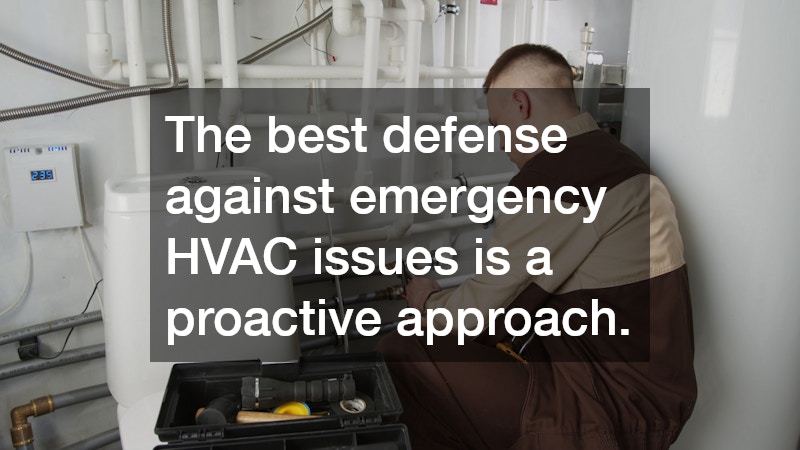Avoid Costly Repairs with These Emergency HVAC Tips
The HVAC system is an integral part of any home, responsible for maintaining comfortable indoor temperatures regardless of the weather outside. However, when an emergency HVAC situation arises, it can lead to expensive repairs and even more costly replacements if not handled promptly. By being prepared with some key maintenance tips and knowing what to do in an emergency, you can avoid breaking the bank while ensuring your system remains in good working order.
Regular Maintenance Checks
One of the most effective ways to prevent emergency HVAC situations is through regular maintenance checks. Scheduling routine inspections can help you identify potential issues before they escalate into costly repairs.
Professional technicians are trained to spot signs of wear and tear that might be invisible to the untrained eye, allowing for timely intervention. Ensuring that filters are clean, system components are well-lubricated, and ducts are unobstructed can greatly enhance HVAC efficiency. Maintaining a maintenance log can also be beneficial, providing a detailed history of service and repairs.
Regular maintenance checks can also extend the lifespan of your HVAC system, contributing to long-term cost savings. A well-maintained system operates more efficiently, often translating to lower energy bills and reduced strain on components. Homeowners are encouraged to engage in basic preventive actions, such as replacing filters every 30 to 90 days, to enhance system performance. Engaging a professional annually for a detailed inspection ensures a comprehensive assessment, providing peace of mind and preventing unexpected breakdowns. In the long run, proactive maintenance is a small investment compared to the high costs of emergency HVAC repairs.
Additionally, during routine checks, technicians can upgrade system components when necessary, improving overall efficiency. Advancements in HVAC technology mean that older systems might benefit from newer, more efficient parts. During maintenance visits, homeowners can discuss with professionals about possible technological upgrades or optimizations. It’s also during these checks that duct sealing might be addressed, preventing air leaks that hinder system performance. By ensuring all components are modernized and functioning optimally, you can avoid the drastic measures that emergency HVAC situations often necessitate.
Prompt Response to System Warnings
Ignoring the warning signs of an impending HVAC problem is one of the surest ways to incur costly repairs. Strange noises, unusual odors, and fluctuating temperatures are common indicators that warrant immediate attention. Addressing these issues promptly can often mitigate the need for major repairs, saving both time and money. Homeowners should remain vigilant and not dismiss the initial signs as mere nuisances but as potential precursors to significant system failures. Knowing when to call a professional can prevent small problems from escalating into emergency HVAC situations.
A responsive strategy to HVAC warnings also involves basic troubleshooting before calling for professional assistance. For instance, if the system isn’t heating or cooling as expected, checking thermostat settings or resetting it might resolve minor issues. Ensuring that the breaker hasn’t tripped or that circuit connections are secure can also solve some problems. These initial checks not only delay the wear and tear of the system but can sometimes avert the need for emergency HVAC interventions. Homeowners practicing due diligence and basic troubleshooting techniques can often catch issues before they become emergencies.
Educating yourself about your specific HVAC system can empower you to identify and aptly respond to minor problems. Many manufacturers provide user manuals with troubleshooting guides that can be quite resourceful. Online resources and forums can be valuable for understanding common issues specific to your model. By becoming familiar with your system, you can sense abnormal performance and decide on the appropriate course of action. Staying informed and responsive is your best defense against the inconvenience and expenses of emergency HVAC repairs.
Emergency Preparedness Plan
A robust emergency preparedness plan can be vital in managing unexpected HVAC failures without incurring exorbitant costs. One crucial component is having the contact information of a reliable HVAC repair service available at all times. This ensures prompt service when needed, reducing the wait time and preventing further damage. Keep a list of at least two service providers to cover instances where one might be unavailable. Having professionals you can trust also provides peace of mind during stressful emergency HVAC scenarios.
Your emergency readiness should also include knowledge of how to override your system in case of complete failure. Many HVAC systems allow for manual operation, which can be a lifesaver until professional help arrives. Familiarizing yourself with these features during non-emergency times makes it easier to handle real crises effectively. Additionally, having portable heating or cooling solutions, like space heaters or fans, available can temporarily mitigate comfort issues while awaiting repairs. Such proactive steps ensure that even in emergencies, your comfort and safety are prioritized.
Moreover, preparing for HVAC emergencies involves financial readiness as well. Having an emergency fund allocated for HVAC repairs can alleviate the financial burden when sudden breakdowns occur. Regularly contributing to this fund ensures that when an unexpected repair or replacement is necessary, it’s less disruptive to your finances. Additionally, investing in a home warranty that covers HVAC systems might be a wise consideration. Such preparedness minimizes stress and ensures swift transitions back to comfortable living conditions after an emergency HVAC situation.
.



